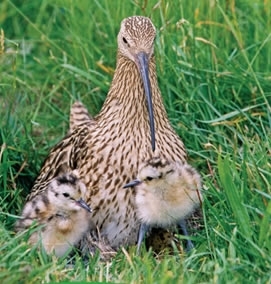 By Andrew Gilruth, GWCT Communications Director
By Andrew Gilruth, GWCT Communications Director
Preparation for leaving the European Union allows us to rethink our approach to conservation. This could transform the prospects of many declining species. This month our Chief Executive, Teresa Dent CBE, wrote to all GWCT members explaining that she feels:
“This is the biggest opportunity for conservation in a generation.”
Years of research give us a great understanding of what does and does not work in the real world – and we want to take that back to policy makers. Teresa asked members to seize the opportunity and help fund change – the response has been magnificent. Thank you. With your support, we are now making a start.
Westminster APPG debate – ‘Necessity of predator control in conservation’
On Thursday this week we will be debating the role predator control should play in halting this worrying decline of wading birds before it’s too late - breeding numbers in the agricultural lowlands are now insufficient for effective population recovery.
What needs to change?
Each year we spend £6 million on agri-environmental stewardship to improve habitat, but lapwing pairs have declined by 40%. This does not include predator control - it is excluded from formal conservation policy. But is it time to include predator control now that we know it can increase their breeding success by three-fold?
Guest speakers
- Andrew Hoodless, Head of Wetland Research, Game & Wildlife Conservation Trust
- Mary Colwell, Conservationist and Director of Curlew Media
- Martin Harper, Conservation Director, RSPB
How can you help?
Please email your MP and ask them if they will be attending the Game and Wildlife APPG, Thursday 15 September 2016, between 12.30pm-1.30pm in the Jubilee Room, Westminster Hall. Do let us know their response by forwarding it to info@gwct.org.uk.